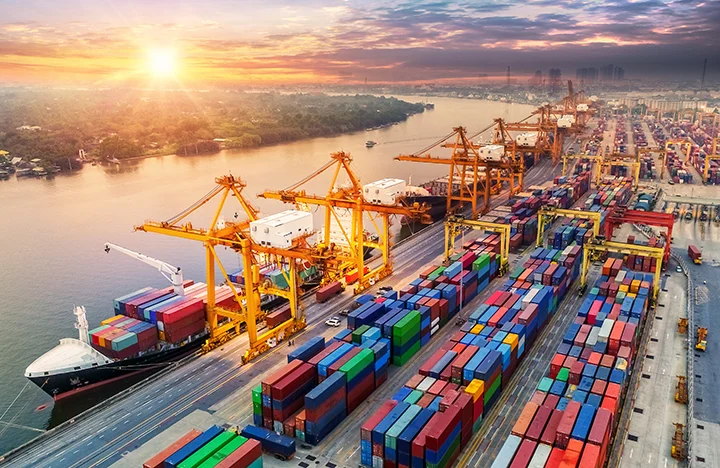Ghana’s ports saw a steady increase in its transit traffic of 1.5 million metric tons last year, compared to 1.3 million metric tons in 2019 while seeing a significant increase in its transshipment traffic of 602,778 metric tons in 2020 compared to 90,158 metric tons in 2019 in spite of COVID-19.
These figures are further supported by the fact that 229,650 metric tons of Ghana’s port transit traffic were from coastal countries with ports.
According to the General Manager in charge of Marketing and Corporate Affairs at the Ghana Ports and Harbours Authority, Mrs. Esther Gyebi-Donkor, this is indicative of the strides Ghana’s ports have made towards becoming the preferred trade and logistics hub in the sub region.
“Out of the figures from the coastal countries, I can tell you for a fact that Abidjan is the highest in there whereas we have people coming from Lomé and a few from Benin. This should tell you that there is something special about Ghanaian ports,” she expressed.
The General Manager in Charge of Marketing and Corporate Affairs at GPHA said the MPS Terminal 3 at the Port of Tema, which currently has 3 out of 4 berths completed, boasts of adequate infrastructure consisting of 16m draft and 1400m quay length making it possible to cater for the largest vessels carrying up to 20,000+TEUS.
She said this investment is further consolidated by the availability of modern equipment such as 7 Super Post Panamax Ship to Shore Gantry Cranes, and 20 Rubber Tyre Gantry Cranes, making it capable of handling 2,000,000 TEUs per year.
Mrs. Gyebi-Donkor said the availability of infrastructure, strategic geographic location, flexible port charges, top notch security, labor efficiency and deliberate policy direction makes the Ports of Ghana attractive to its clients which include the local Ghanaian trading public, economic operators from the landlocked Sahelian countries, and even some importers and exporters from other coastal countries.
She said the Ghana Ports and Harbors Authority has been deliberate in the pursuance of customer oriented policies and activities that woo the international trading community to use its ports.
“Our charges are preferably cheaper and the other incentives we give to them like the warehousing facilities. We have special arrangements where those who bring in huge volumes of transit cargo, are given 60 days instead of the usual 21 days to get their cargo out of the Port” Mrs. Gyebi-Donkor elaborated.
She also revealed that receipt and delivery charges at Ghana’s ports have been deliberately made cheaper in order to bring relief to the local trading community.
